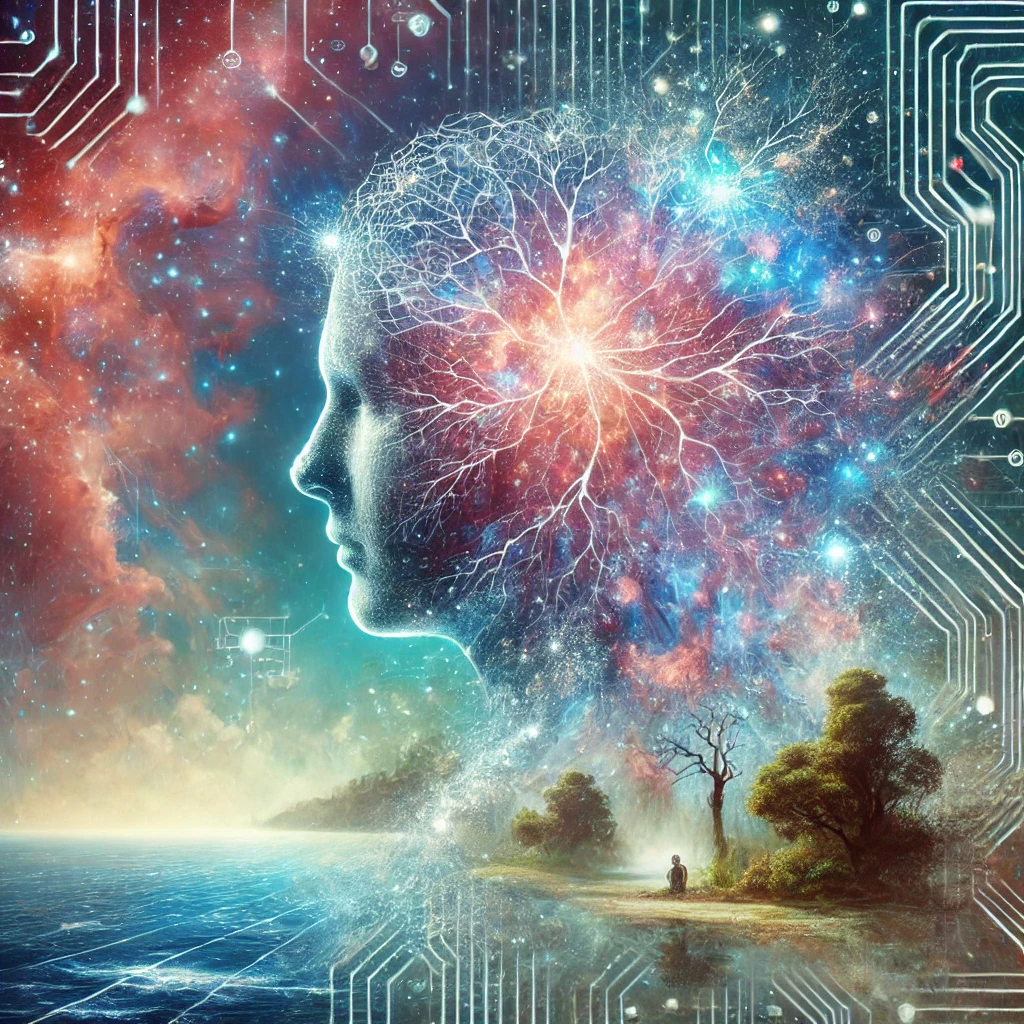At some point in our not-too-distant evolutionary past, we forgot who we were. Or, perhaps more precisely, we started believing in something that never was. The grand myth of human exceptionalism took root, severing our sense of connection to the natural world. We began to see ourselves not as one of nature’s many children but as the grand designer of the whole family. More crucially, we built walls between ourselves. Boundaries, identities, allegiances—imaginary demarcations that turned cooperation into conflict and kinship into competition.
Then came religion, only a few millennia ago, whispering stories of human dominion. Civilization followed, etching deep grooves of hierarchy and control into our collective psyche. The idea that we were separate from nature hardened, reinforced by doctrines that made humans the centerpiece of the universe. And for thousands of years, it held—until Charles Darwin dealt it a near-mortal blow just 160 years ago.
Yet, even as we accept our place in the evolutionary story, we cling to another illusion: the illusion of the individual self. We marvel at the singularity of the human mind, its astonishing ability to solve problems, shape the world, and outwit nature’s fiercest obstacles. But the brain, in isolation, is nothing more than a powerless lump of gray matter. Its brilliance is not in what it does alone, but in what it does together. Our intelligence is a collective intelligence. Our survival has never been an individual endeavor—it has always been a communal one.
The true marvel of Homo sapiens is not the solitary genius, but the intricate, cooperative networks that bind us. Our minds do not operate in isolation; they synchronize. We think in dialogue, evolve in conversation, and build in unison. But even our greatest strength—our capacity to form alliances and organize into powerful social units—has also become our greatest obstacle.
The biggest threats to human survival today—climate change, global pandemics, systemic poverty—care little for political borders or tribal affiliations. They are universal challenges, demanding universal solutions. And yet, instead of rallying together, we have allowed our evolutionary predispositions to divide us.
We are hardwired to recognize kin, to distinguish “us” from “them.” These instincts once ensured survival in small hunter-gatherer bands, but today, they manifest as prejudice, racism, and nationalism. Psychological phenomena like the cross-race effect—where individuals struggle to differentiate faces outside their own ethnic group—reveal just how deeply ingrained these biases are. Our social recognition software, designed to detect subtle cues of belonging, now fuels division and discord.
And so, here we are, equipped with the most advanced social cognition of any species yet trapped by the very same mechanisms that should unite us.
We like to think of ourselves as self-sufficient, as autonomous individuals forging our own destinies. But we are utterly dependent creatures. We require partners to reproduce, caregivers to raise us, communities to support us. Even our genetic code insists upon interdependence: sexual reproduction itself exists because the mingling of diverse genomes creates a stronger, more adaptable species. We are not isolated beings; we are biological systems within even greater ecological systems, composed of interactions, dependencies, and shared fate.
Our interconnection extends beyond our own species. We are enmeshed in an ecological web, reliant on species we rarely consider. The bees that pollinate our crops, the plankton that oxygenate our oceans—each extinction, each ecological loss, is a severed artery in the body of life itself. The world has sustained us for millennia, sculpting an environment in which we could flourish, but we are dismantling it with reckless abandon. The sixth mass extinction is upon us, and the mirror shows the culprit.
To move forward, we must shed the illusion of separateness. The self, as we understand it, is a phantom—an emergent property of billions of interconnections. Our survival does not hinge on competition but on collaboration. As Martin Luther King Jr. warned, we must learn to live together as brothers or perish together as fools.
This is our turning point, the moment history will judge. The nationalist rhetoric, the tribal thinking, the zero-sum games where one nation’s gain is another’s loss—these are relics of a past that cannot dictate our future. We must reject the narratives that divide us and embrace the truth of our interwoven existence.
Progress begins with a shift in perspective. Every individual must come to see themselves as part of a vast, interconnected whole. We are stewards of this planet, endowed with intelligence but burdened with hubris. If we fail to recognize our fundamental unity, our technological prowess will not save us—it will doom us.
We are a species at a crossroads. We can persist in our delusions, or we can embrace reality: that we are, and have always been, one. The choice is ours. And the time is now.
Watch the video version of this article here (made with my Spanish fam Fredy Kaal Hove and Celia Escandel): https://www.youtube.com/watch?v=p7T3uP1wK0w

